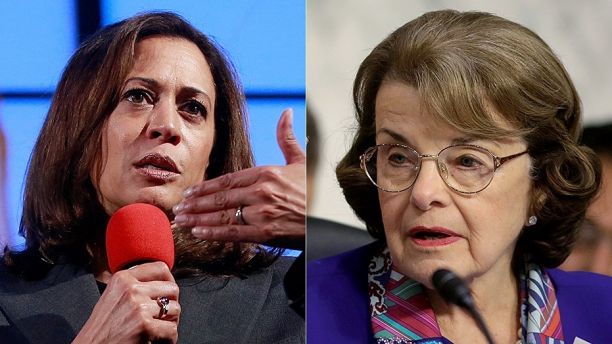California Dems Dreamin'? Long-shot bid to split up state would boost party in Senate

Californians likely will vote in November on a long-shot referendum to split their giant state into three – a measure that, while standing little chance of success, would represent a political gift to Democrats.
Such a California breakup would upset the political balance in the Senate if it actually happened, and hurt the GOP.
According to a Fox News analysis of county-level voting data, splitting California as outlined would create two solid blue states and one leaning blue state. That could very well mean four extra Senate seats for Democrats – plus four more electoral votes in presidential elections.
So is there an ulterior motive to this otherwise quirky referendum campaign?
Silicon Valley millionaire Tim Draper, who last week announced he’d collected enough signatures to get the measure on the California ballot, told Fox News his motivation is strictly nonpartisan and aimed at creating more efficient governments.
Sens. Kamala Harris and Dianne Feinstein would have Democratic company if the long-shot bid to split up California actually succeeded. (Reuters)
“This is a great opportunity for Californians who want better education, safer streets, better infrastructure, better healthcare, lower taxes, and want to be empowered and represented in government,” Draper said by email.
Draper reportedly is a registered Republican, though supported former President Barack Obama. Democrat-boosting is not exactly his MO, though the political implications of the plan could attract supporters seeing blue.
'I seriously doubt any of this will happen.'
His proposal would replace the current California with three states: "Northern California," combining San Francisco and the rural northern parts of the state; "Southern California", including San Diego and the rural eastern parts of the state; and "California," made up of Los Angeles and the coastal areas north of it.
California eccentrics have tried and failed numerous times to split up the massive state.
But if the referendum were to beat the odds and get the green light from Congress, it would almost certainly shift the political landscape to Democrats’ advantage.
In 2016, California went for Hillary Clinton over now-President Trump by a margin of 30.1 percentage points.
If the states had been divided as proposed prior to the election, the results would have been:
Northern California: Clinton (+ 37 percentage points)
California: Clinton (+ 44.1)
Southern California: Clinton (+ 9.7)
Southern California would be the only competitive state, but a 9.7 percent advantage is substantial.
Every real state that went for Clinton by that margin or greater in 2016 also boasts a Democrat-only Senate delegation (counting Bernie Sanders of Vermont, an independent who caucuses with Democrats). California is currently represented by Democratic Sens. Dianne Feinstein and Kamala Harris.
New California declares 'independence' from rest of state
Republicans can take comfort in political scientists saying the split is unlikely.
"I seriously doubt any of this will happen," Mark J. Rozell, dean of policy and government at George Mason University, told Fox News.
"States were not created in this republic for the primary purpose of gaming the Electoral College and packing the Senate," he added.
The referendum has several hurdles to clear. The signatures collected by Draper still have to be vetted to make sure they’re valid.
And while no public polling has yet been done on the current proposal, a 2014 Field Poll found that 59 percent of Californians opposed a similar plan to split the state into six smaller states (that one failed to get enough valid signatures).
Even if the new proposal were to win at the polls, the U.S. House and Senate would have to approve the proposal before the state could actually split.
Such a split is allowed under the Constitution; early in the country’s history, Kentucky split from Virginia, Maine split from New York, and West Virginia split from Virginia.
Draper touts the idea as a way to bring innovation to government -- with more governments competing with each other, the idea goes, they would be more likely to come up with good policies.
San Diego fights California's sanctuary state law
“This is completely non-partisan,” he told Fox News in response to questions about the above political impacts.
“The decks will be cleared and we can create states that can be models for other states to follow for the future,” he wrote.
A split into three states would contain one silver lining for the GOP, according to Geoffrey Skelley, political analyst at the University of Virginia Center for Politics.
"Republicans might be pleased because, in a presidential election, they might actually have a chance of winning some electoral votes in California," Skelley noted.
The Southern California margin of 9.7 percentage points makes it seem far from a swing state, Skelley said, but noted that California is particularly anti-Trump and it could be closer with a different GOP presidential candidate.
GOP surrogate Oz Sultan told Fox News that he opposes California splitting because of the costs involved.
"I think the proposed changes pose a tremendous [cost] for Californians in terms of loss of government services … and what would need to be created in terms of new governments," he said.